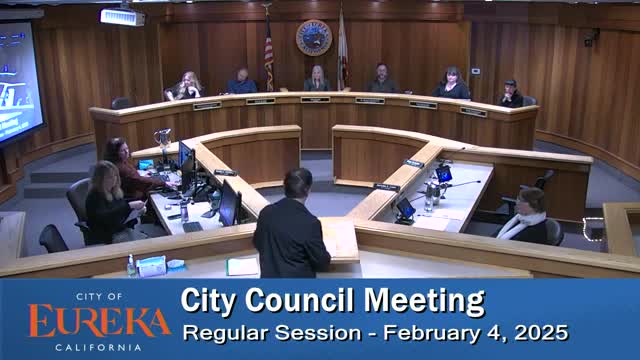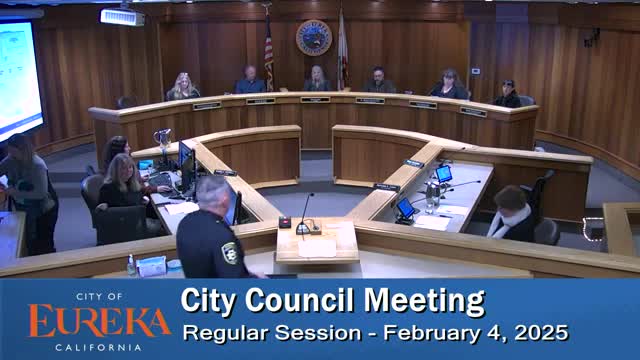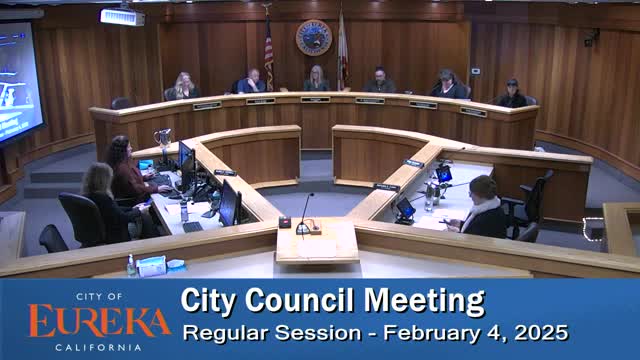Article not found
This article is no longer available. But don't worry—we've gathered other articles that discuss the same topic.

Neighbors press Eureka council to enforce syringe-exchange ordinance near Clara Mayberry Park; ask for clear policy definitions

Eureka council rejects Flock Safety license-plate camera contract after hours of debate and public comment

